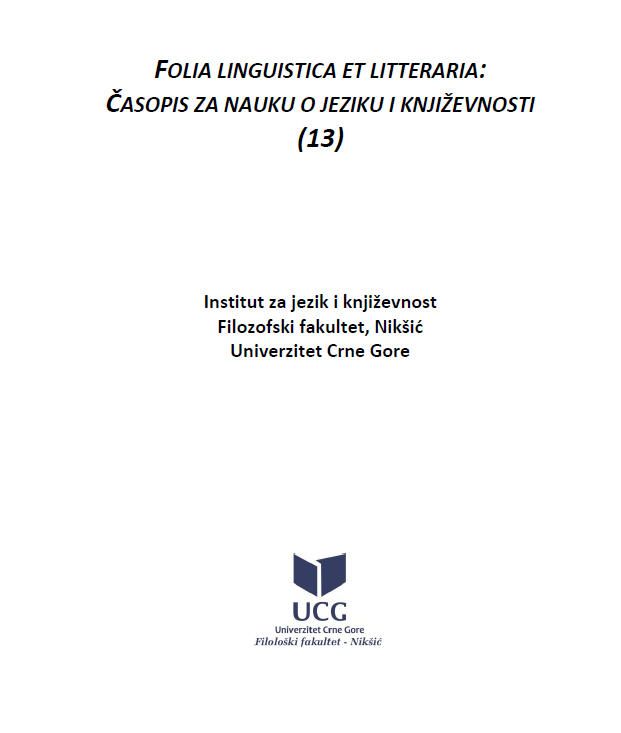THE DISCOURSE OF POWER IN POPULAR FICTION: A CASE STUDY OF CHARLAINE HARRIS’ DEAD UNTIL DARK
THE DISCOURSE OF POWER IN POPULAR FICTION: A CASE STUDY OF CHARLAINE HARRIS’ DEAD UNTIL DARK
Author(s): Biljana OklopčićSubject(s): Theory of Literature, American Literature
Published by: Filološki fakultet, Nikšić
Keywords: power; power as domination; power as capacity; popular fiction; crossgenre hybrid; romance; horror; mystery; Charlaine Harris; Dead Until Dark;
Summary/Abstract: This paper examines how the terms power as domination and power as capacity can be applied to reading popular fiction, in particular to cross-genre hybrids such as Charlaine Harris’ Dead Until Dark (2001). The term power as domination refers to coercive power or power over, which in popular fiction works through its form and fandom/readership. The principles of coercive power in Harris’ novel are visible in its cross-genre hybridity (mystery-horror-romance), which attracts different types of fans/readers who, in its multi-generic definition, find their own type of empowerment. The term power as capacity connotes coactive power or power with as well as power to. This type of power is in popular fiction present in specific structural elements of popular fiction genres such as characters, narrative voice, resolution, irony, plot, setting, themes, motifs, symbols, etc. Harris’ novel thus shows the female protagonist’s power to question and subvert (1) racism, sexism, and homophobia in the American South, (2) Southern myths and stereotypes, and (3) the concept of otherness. Sookie Stackhouse’s power is also coactive as it is occasionally exercised through either collaboration (mutual empowerment exemplified by her relationship with vampire Bill Compton) or assistance/education (assisted empowerment exemplified by her relation with other supernatural beings).
Journal: Folia Linguistica et Litteraria
- Issue Year: 2015
- Issue No: 13
- Page Range: 97-111
- Page Count: 15
- Language: English

